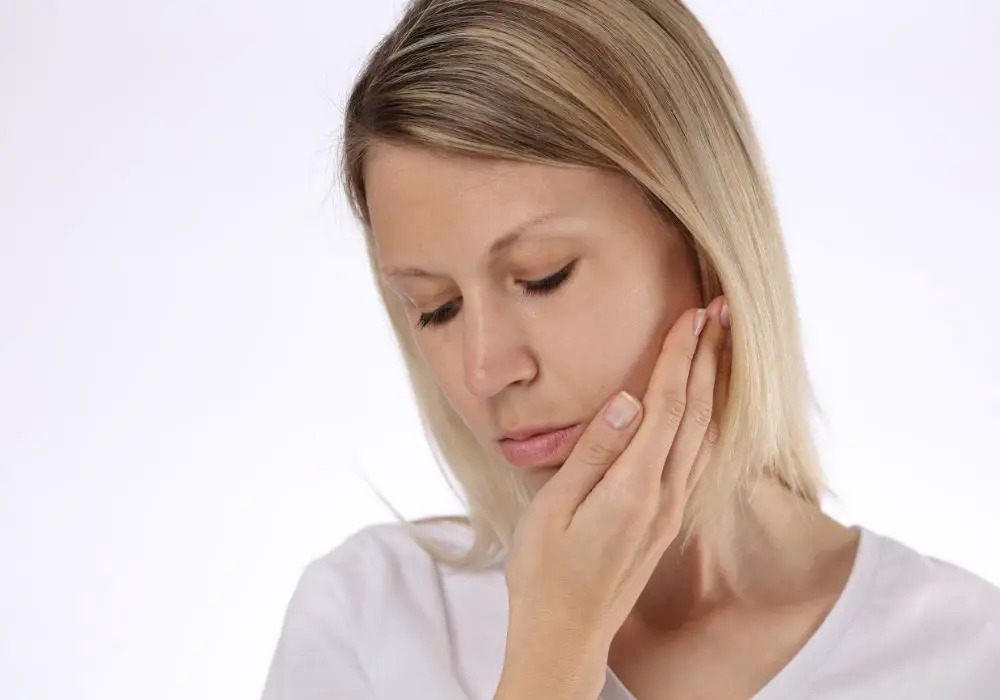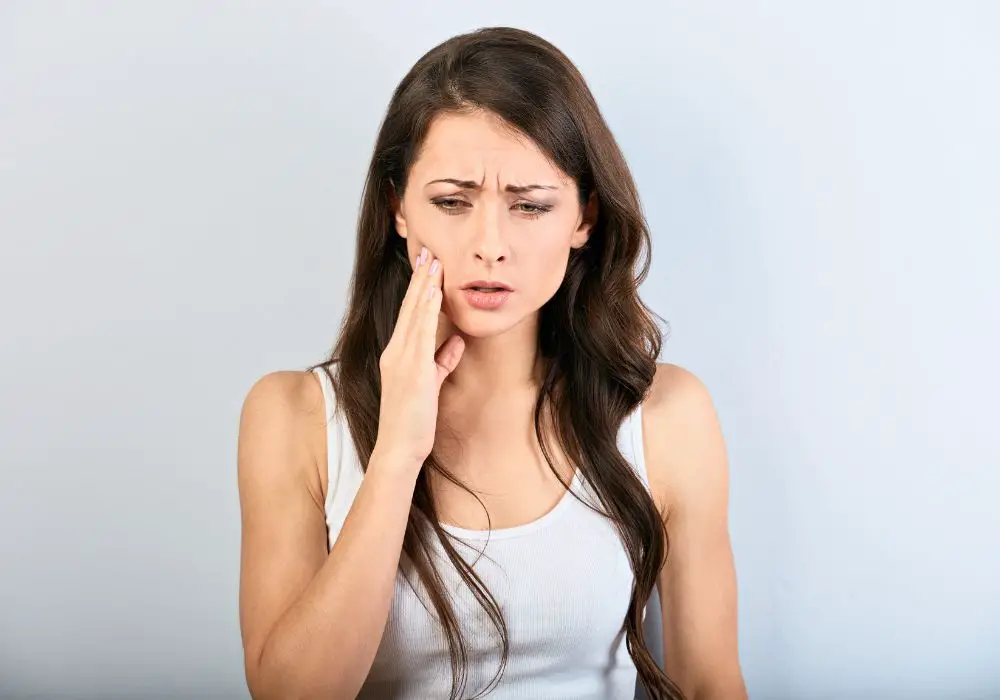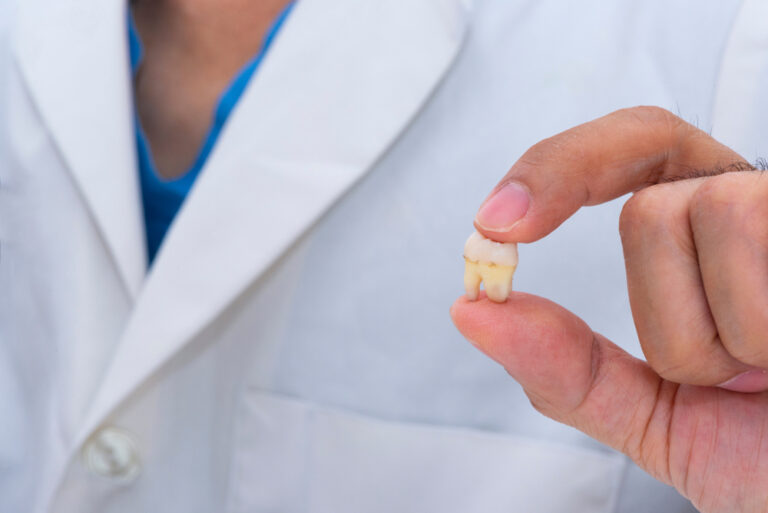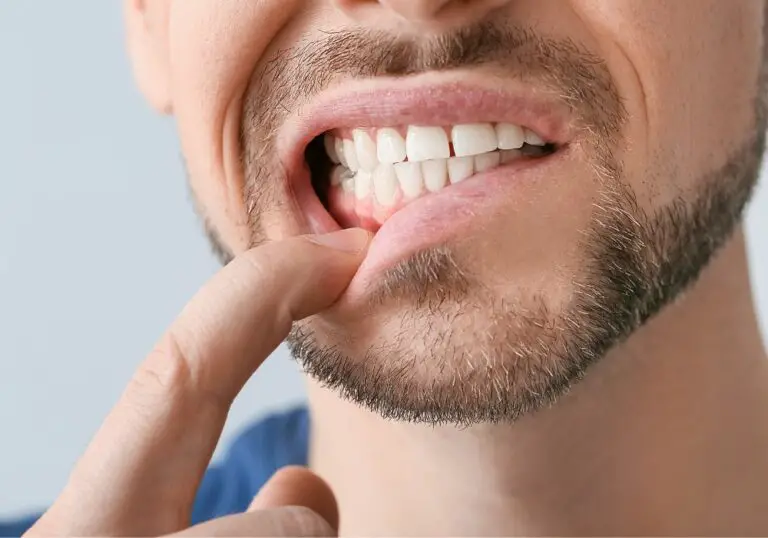Experiencing sudden, unexplained pains in your teeth can be alarming and frustrating. However, there are a number of potential causes for these random dental pains. In this in-depth guide, we will explore the common reasons you may be experiencing mysterious toothaches and sensitivity.
What’s causing my random tooth pain?

Teeth are complex structures, with inner nerve endings and outer enamel layers. Damage or irritation to any of these areas can register as pain. Here are some of the most likely culprits behind your mysterious tooth pain:
Tooth decay and cavities
Tooth decay occurs when plaque – a sticky film containing bacteria – builds up on your teeth. The bacteria metabolize sugar and carbohydrates in your diet and produce acids that erode tooth enamel. This erosion causes tiny holes known as cavities to form. At first, decay and cavities may not produce any symptoms. But as they grow larger and deeper, they can reach the inner tooth layers containing nerves and blood vessels. The exposure of these sensitive inner structures to food debris, air, and liquids triggers sharp, sudden toothache pain.
Cavity pain is often:
- Intense when eating or drinking hot, cold, or sweet foods
- Brief and sharp when exposed to air
- Worsened by chewing or biting
- Focused on a specific tooth
If decay is allowed to progress, cavities can lead to serious dental infections and irreparable pulp inflammation. Early cavity treatment with fillings prevents this damage and the resulting toothaches.
Cracked or broken teeth
Cracks or fractures in your tooth enamel from injury or intensive biting forces can also cause mysterious pains. Cracks allow irritants, bacteria, and fluids to seep inside the tooth and inflame the inner dental pulp. This manifests as lingering pain when chewing, sudden sensitivity to hot and cold, or general discomfort that seems to have no cause.
Cracks are not always visible on the surface, but deep fractures within the tooth layers can reach the pulp tissue. Tiny hairline fractures can also form below crowns or fillings over time. As cracks widen, they provide an entryway for bacteria that brings risk of dental abscess. Without treatment, damage can progress until the tooth splits or requires extraction.
Dental abscess
A dental abscess is a severe infection of the inner tooth pulp or gums, resulting in a pocket of pus. Abscesses commonly start from advanced tooth decay, cracks, trauma to the teeth, or severe gum disease. The pooling infected fluid puts pressure on surrounding teeth and tissue, causing throbbing pain that continuously worsens. Other abscess symptoms may include:
- Swollen, red, tender gums
- Fever and chills
- Foul taste or bad breath
- Swollen lymph nodes
- Pain that radiates to the jaw, neck, or head
Abscesses require prompt medical care, as the infection can spread to deeper facial tissues or the bloodstream. See a dentist immediately if you notice any symptoms of a possible dental abscess.
Receding gums
Gum recession refers to gums pulling away from the base of teeth, exposing vulnerable tooth roots. This most often occurs due to periodontal (gum) disease, but overly forceful brushing and normal aging can also cause gums to recede. Without the protective gum tissue, the newly exposed sections of teeth have no enamel layer or surrounding bone. Air, temperature changes, sugar, and light brushing can provoke sharp pains. The exposed roots may also appear longer than normal.
Though uncomfortable, gum recession pain reminds us to be gentle with brushing. Improving oral hygiene and using teeth-strengthening products can help prevent further gum loss.
Problems with dental fillings or crowns
Many people have older silver amalgam or resin composite fillings. Over time, these fillings can weaken and fracture, allowing new decay to form at the margins. Bacteria and particles then enter these crevices and irritate the underlying tooth pulp. This manifests as sudden pain when eating or temperature changes.
Likewise, dental crowns may not fit properly years after initial placement. Cracks can also form in the porcelain, enabling irritants to inflame the tooth pulp and nerves. Any discomfort from old fillings or crowns warrants prompt dental re-evaluation.
Bruxism (teeth grinding or clenching)
Some individuals unconsciously grind, grit, or clench their teeth, especially during sleep. This puts tremendous pressure on teeth and can cause symptoms like:
- Tooth sensitivity and aching discomfort
- Headaches and ear pain upon waking
- Jaw soreness or stiffness
- Chipped or cracked tooth surfaces
Bruxism tooth damage contributes to unexplained pains by enabling penetration of bacteria deep into the tooth layers. Stopping the grinding habit through dental appliances, stress reduction, and other techniques alleviates this pain source.
TMJ disorders
TMJ (temporomandibular joint) disorders affect the joints connecting your jawbone to your skull and the surrounding muscles. Problems like osteoarthritis, jaw injury, dislocation, muscle strain, and teeth misalignment can all impact the TMJ area. TMJ disorders manifest with:
- Pain in the jaw joints and muscles
- Clicking, popping, or grinding noises with chewing
- Headaches and neck/shoulder pain
- Tooth sensitivity or pain from incorrect bite
Because TMJ pain originates in the jaw and joints, it may radiate to the nearby teeth and gums. This can make the source difficult to pinpoint. See your dentist for an exam if jaw issues could be contributing to your dental pain.
Developmental dental defects
Rarely, people may experience unexplained tooth sensitivity and aching due to irregularities in tooth formation or structure. For example:
- Enamel hypoplasia: Thin, weak enamel due to childhood illness/fever
- Dentinogenesis imperfecta: Defective dentin production causing grey, translucent teeth
- Dens evaginatus: Extra enamel protrusions on molars
These and other defects can predispose teeth to early wear, fracture, and decay. Orthodontic treatment sometimes helps reduce discomfort.
Referral pain from sinusitis
Your sinuses are a system of connected air-filled pockets within the bones surrounding your nose. When these sinuses become inflamed or infected with sinusitis, the pressure can radiate and cause diffuse facial pain.
Specifically, the maxillary sinuses located above your upper teeth may manifest with toothache or pain in the upper molars and jaw. This referral pain is due to the close proximity and nerve connections between the sinuses and upper teeth. Sinusitis tooth pain is often worse when bending over and when lying down.
Treating the sinus infection with rest, hydration, medications, and possibly antibiotics will resolve the associated dental pain. However, always see a dentist to rule out a dental cause.
When should I visit my dentist about tooth pain?

Make a dental appointment as soon as possible if you experience any persistent or recurring tooth pain, sensitivity, or discomfort. Trying to wait out toothaches or self-diagnose can risk extensive damage. Your dentist can properly evaluate symptoms, order X-rays, and identify the underlying problem.
See your dentist immediately or go to urgent care if you have severe, sudden tooth pain along with:
- Swelling in facial or neck areas
- Difficulty fully opening your mouth
- Gum redness and extreme tenderness
- Pus discharge from gums
- Fever, chills, or malaise
These serious symptoms may indicate a progressed dental abscess, infection, or other issue needing emergency treatment. Prompt antibiotic therapy and drainage of abscesses prevents further spread.
How will my dentist diagnose my tooth pain?
During your dental visit, expect your dentist to:
- Ask questions about your tooth pain onset, duration, triggers, and intensity
- Perform a clinical oral examination looking at your teeth, gums, tongue, jaws, etc.
- Check for dental decay, cracks, gum disease, swelling, or irregularities
- Order X-rays if needed to see below the surface for damage
- Test tooth sensitivity using hot/cold stimuli or percussion
- Take a medical history, as health conditions can contribute to pain
This comprehensive assessment provides clues to the pain origin. Your dentist will then explain their working diagnosis and recommended treatment plan.
What treatments can relieve random tooth pain?
The treatment your dentist prescribes depends on the diagnosed cause of your discomfort. Common options include:
Dental fillings
Fillings are used to treat cavities. After numbing the area, the decayed section is drilled out and replaced with a durable filling material such as composite resin, silver amalgam, or porcelain. This eliminates the hollow space where food/liquids could enter and irritate the pulp.
Tooth-colored crown
Like a cap placed over a tooth, a crown fully encases the visible tooth surface. This protects damaged areas prone to sensitivity. The crown color matches your natural teeth.
Root canal
For extensive inner tooth infections, a root canal removes the inflamed or diseased pulp, cleans and disinfects the interior roots, then seals the space. This helps relieve current pain and saves the tooth.
Tooth extraction
If a tooth cannot be salvaged due to severe infection, fractures, or decay, extraction may be necessary. Other teeth can shift over time after extraction. A dental implant, bridge, or denture are options to replace the gap.
Night guard
Custom night guards protect your teeth from grinding damage during sleep. This also reduces strain on the jaw joints.
Medications
For dental abscesses or other infections, antibiotics are prescribed to eliminate bacteria. Pain relievers like acetaminophen or ibuprofen can temporarily reduce discomfort until the underlying problem is treated.
Referral to endodontist
If dental pains are traced to complex root and nerve issues, your general dentist may refer you to an endodontist, a specialist in these inner tooth structures.
Dental pain should never be ignored. With appropriate diagnosis and care, your dentist can resolve tooth sensitivity, preserve your natural smile, and prevent future discomfort. Be sure to follow all prescribed at-home care and maintain excellent oral hygiene. Schedule regular dental cleanings and checkups as well to catch problems early.

Frequently Asked Questions
Here are some common questions about mysterious tooth pain:
Why does my tooth hurt when nothing is wrong?
Teeth may hurt for no apparent reason when there are issues like minor enamel cracks, gum recession, small areas of decay under old fillings, or mineral loss in the enamel. These allow irritation of the inner tooth layers and dentinal tubules. Mild tooth pain can signal problems before major damage has time to occur.
Can anxiety or stress cause tooth pain?
Yes, anxiety and stress absolutely can manifest with tooth pain and sensitivity. Teeth grinding, jaw clenching, and muscle tension due to stress puts excessive force on teeth. This can inflame nerves or cause tiny fractures. Managing anxiety and relaxed the muscles through therapies, lifestyle changes, and medication may relieve associated dental pain.
Why do my teeth hurt so bad at night?
Toothaches that mainly occur at night are typically due to recumbent positioning. Lying down increases blood flow, fluid pressure, and nerve sensitivity. Cavities, cracks, abscesses, and other issues may feel fine during the day but hurt when blood pulses at night. It’s also common to clench or grind at night, causing symptoms.
Can dehydration or dry mouth cause tooth pain?
Yes, dehydration and related dry mouth can contribute to tooth pain. Inadequate fluid intake allows more bacteria growth in the mouth. Insufficient saliva flow also reduces the mouth’s natural cleaning effects. The bacteria and food debris irritate the teeth, especially any cracks or decay. Be sure to drink enough water and limit sugary drinks.
Why are my teeth suddenly sensitive to cold?
Sudden sensitivity to cold could indicate a fractured tooth, gum recession, or loss of enamel integrity. The exposed inner tooth layers contain fluid-filled tubules that register pain when encountering cold liquid or air. Cracked teeth are especially reactive to cold due to penetration of irritants deep into the tooth. See your dentist to identify the cause.
Why do my teeth hurt after a filling?
It’s common for teeth to remain sensitive to hot/cold after getting a filling, which should subside over days to weeks as inflammation heals. Prolonged pain after a filling may indicate that biting forces are hitting it prematurely before fully hardened. In rare cases, new pain after a filling could signal accidental trauma to the pulp during preparation.






